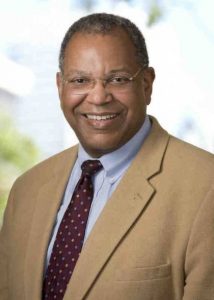Johns Hopkins UniversityEst. 1876
America’s First Research University
A unique collaboration with Unity Health Care to bring cancer screenings, evaluation, and navigation to underserved communities in Washington, D.C., is getting much-needed support from Judy and Peter Kovler, longtime philanthropists to Johns Hopkins.
This new clinical program supplements Johns Hopkins’ supported outreach underway for the communities of the 5th, 7th, and 8th Wards in Washington, D.C., which has some of the highest cancer rates in the country. Based at Unity Parkside Health Center in the 7th Ward, a nurse practitioner and nurse navigator have been working across Unity’s Health Centers located throughout the 7th and 8th Wards to evaluate patients for cancer. The team also provides urgent care visits to address cancer- and treatment-related side effects close to these patients’ homes.

A newly recruited nurse navigator and patient navigator, funded through the Kovlers’ gift and based at Sibley Memorial Hospital, further support patients and families from these underserved communities by being by their side during their care at the Sidney Kimmel Comprehensive Cancer Center at Sibley.
The Kovlers were inspired to get involved to ensure that everyone has equal access to excellent health care. As active members of the Sibley Memorial Hospital Foundation Board of Trustees and Kimmel Cancer Center National Advisory Board, they joined with the center’s leadership to make outreach to underserved communities a priority.
“We and other family members have been treated at Hopkins and Sibley throughout our lifetimes. Our grandchildren were born at Sibley. We are so grateful for the excellent care our family members have received and feel it’s only fair that everyone should have access to that kind of treatment,” says Judy Kovler, PhD, who is also chair of the Sibley Memorial Hospital Foundation Board of Trustees.
“Why can’t everyone have this kind of care?” she asks.
As they learned more about cancer disparities, increased incidence, and poorer survival plaguing minority communities, the Kovlers, who have lived in Washington for more than 50 years, wanted to help.
They were impressed that William Nelson, MD, PhD, director of the Kimmel Cancer Center, had not just recognized the need in communities but worked to put in place experts that could address these needs. Among those Nelson recruited to develop a plan to reduce cancer disparities among low-income, minority communities was Otis Brawley, MD, former chief medical and scientific officer of the American Cancer Society and a leading authority on cancer screening and prevention. Brawley joined the Kimmel Cancer Center in 2019 as a Johns Hopkins University Bloomberg Distinguished Professor.

Additionally, Ashwani Rajput, MD, a recognized surgical oncologist and translational investigator, was recruited to lead the Kimmel Cancer Center in the national capital region. His leadership has grown engagement, including establishing collaborative programs throughout Washington, D.C., designed to improve access for patients and families living in the 5th, 7th, and 8th Wards.
“The concept for change is only the beginning. You need the right people,” says Peter Kovler. “Dr. Brawley is the world’s most distinguished figure in medicine, particularly in understanding the needs of minority communities. We were also impressed with Dr. Nelson’s leadership in bringing the Kimmel Cancer Center into D.C. and Dr. Rajput’s ideas for elevating care throughout the city. It was the perfect team at the perfect time — a great combination of good ideas and talented people.”
Educated about the need, impressed by the team, and confident in the solutions proposed, the Kovlers were committed to providing the support that would lay the groundwork for building healthier communities.
The Kovlers have a history of stepping up to combat challenging problems at difficult times. Within days of the 9/11 attacks and impending threats of anthrax attacks, they made gifts to bioterrorism researchers at the Johns Hopkins Bloomberg School of Public Health and other local hospitals in and around Washington, D.C. Similarly, when the COVID-19 pandemic hit, they again made donations to support local communities and hospitals in need.
They also have a long history of supporting cancer research at Johns Hopkins, including two endowed professorships.
“We want to be a building block. We hear of a problem, and we want to get involved,” says Peter Kovler. “This is only the beginning. We are in the first or second inning. We have a lot to accomplish to reverse inequality and the enduring problems it has caused. We have to rise to the occasion.”
Topics: Friends of Johns Hopkins Medicine, Johns Hopkins Medicine, Strengthening Partnerships